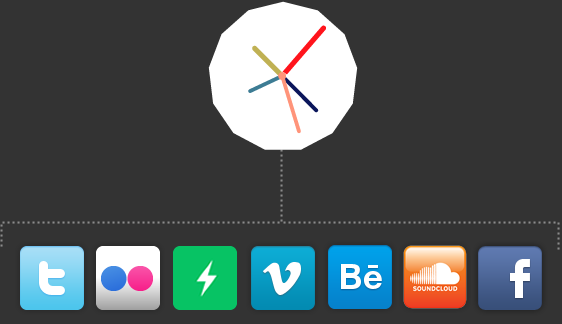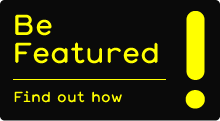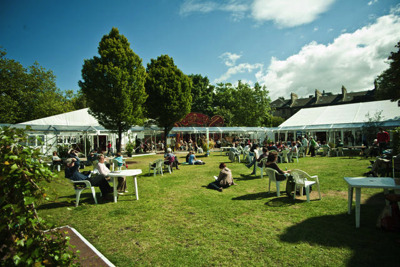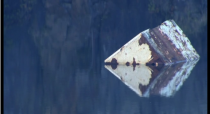////////
Melvyn Bragg attracted the crowds on the last Saturday of the festival leading to a queue that lapped around the Book Festival’s tented village, but the sun was shining and some Gruffalos were wandering around so all were happy, even the kids.
Bragg is mostly known for his work on The South Bank Show, where he was Editor and presenter from 1978 to 2010. He spoke with great enthusiasm about how, when he first started in the role, one of his principle aims was to present popular culture alongside traditional ‘high art’ which dominated the programmes of the time. How things have changed… Yet Bragg distinctively gave the impression that he thought perhaps things have gone too far the other way and at one point bemoaned the current quality of BBC television – harking back to a time when Chekhov was shown on a Sunday evening on BBC2. He also started off by saying that he thought the large audiences at the Book Festival were proof of ‘anti-dumbing down’. Certainly one way to get an audience on your side.
The most fascinating part of Bragg’s event was hearing his stories of those he had interviewed, from opera singer Pavarotti to British filmmaker David Lean. In particular he was determined to capture these artists’ lives through their own words, letting their personalities come through on camera without the associated critique that most arts programmes see as essential. He referred to film critic Pauline Kael’s astute observation that television could act as a lie-detector, revealing the true nature of its subjects.
And finally he pondered on what it was that made a truly great artist. Something that many have discussed and debated over the years. His conclusion? Quite simply, that the artists he met had that extra bit of confidence that they carried through to their work.
////////
The next event for me was to see 60s counter-culture luminary Barry Miles. He famously established the Indica Gallery where John Lennon first met Yoko Ono and was one of the founding editors of the International Times – the prominent underground newspaper that was set up in 1966. He has written numerous books on counterculture, the beat generation and biographies on Paul McCartney, Jack Kerouac and Charles Bukowski, to name a few.
His latest book is called London Calling and attempts to document London’s counterculture history from the forties to the present day. It’s an anecdotal yet detailed account, focusing on Miles’ own experiences and it includes an impressive number of well-known people, eccentric figures and ‘people behaving badly’ (his words!).
It was particularly fascinating to hear Miles talk of his experiences of being part of the team who put on the International Poetry Incarnation, which featured among others William S Burroughs and Allen Ginsberg; an event that was pivotal in establishing the underground culture in London.
Miles also put forward some interesting thoughts on the concept of an underground press in today’s world, he posited that perhaps WikiLeaks is the closest thing we have to such a thing today. The true incarnation of people putting out information for no personal gain.
I managed to catch up with Miles after the event for a chat too – look out for a Q&A to follow shortly.
London Calling: A Countercultural History of London since 1945 is published by Atlantic.
////////
This year’s Edinburgh International Book Festival began on the 14 August, but for me it all kicked off this Monday when I attended two very different events, one featuring art journalist Jonathan Jones and the other popular artist David Shrigley.
The sun was shining down on the tented village in Charlotte Square where the festival makes its home each year. Everything appeared terribly civilised: there were children running around but miraculously no noise, people enjoying a cup of tea in the sun and better still I discovered the press area was actually in a yurt. All in all, a brilliant start.
My first event was the Guardian’s film critic Jonathan Jones in conversation with the director of the Scottish National Galleries, John Leighton. Whilst the younger generation were in the majority outside, inside this event it was a sea of grey-haired ladies and gentlemen. Perhaps the topic wasn’t particularly conducive to a younger audience: Jones was discussing his book ‘The Lost Battles: Leonardo, Michelangelo and the Artistic Duel That Defined the Renaissance’ which looks at a point in time in 1504 when the two artists competed to paint the walls of a room in Florence’s Palazzo Vecchio. A traditional topic but with some interesting contemporary parallels: specifically, comparisons between the status of artists in 16th Century Florence and today’s celebrity equivalents. Although Jones was also keen to point out that whilst some artists might be given a certain amount of reverence in today’s society, they wouldn’t for example, be asked to design a plane, which was the equivalent of a few of the commissions in 16th Century Florence.
Jones also cites this moment in time as a pivotal point in the creation of the concept of the ‘artist as genius’ and sees the Michelangelo/Da Vinci contest as a ‘battle of the genii’. What emerged most fiercely was Jones’ passion for art of the period, something that he couldn’t muster for much contemporary work (although he made an exception for Richard Wright), a sentiment that won’t be a surprise to his regular readers.
Later on I attended a very different event: David Shrigley discussing his hefty new book ‘What the Hell are You Doing?: The Essential David Shrigley’, a collection of his past drawings and photographs. Shrigley’s work has been widely distributed and is frequently featured in newspapers, magazines and on greeting cards. His desire to make people laugh and to reach popular appeal shines through not just in his work but in person too. The event saw Shrigley talk irreverently about his practice with plenty of jokes thrown in. It made me think about the degree to which artists (in the broader sense) are aware of and consider their audience. I’ve always been struck in the past by the number of filmmakers I’ve spoken to who all but ignore the people who will end up watching their film. Shrigley, however, seems to be at the other end of the spectrum, almost positioning himself as an entertainer. The tone of the event very much matched the tone of Shrigley’s work (perhaps unsurprisingly) but personally I found myself wishing that some more meaty discussion had been teased out of the artist.
I’m hoping that the panel discussions later on in the festival will provide more food for thought….
Look out for more commentary from the Book Festival from me and our festival reporters over the coming days.
















Comments